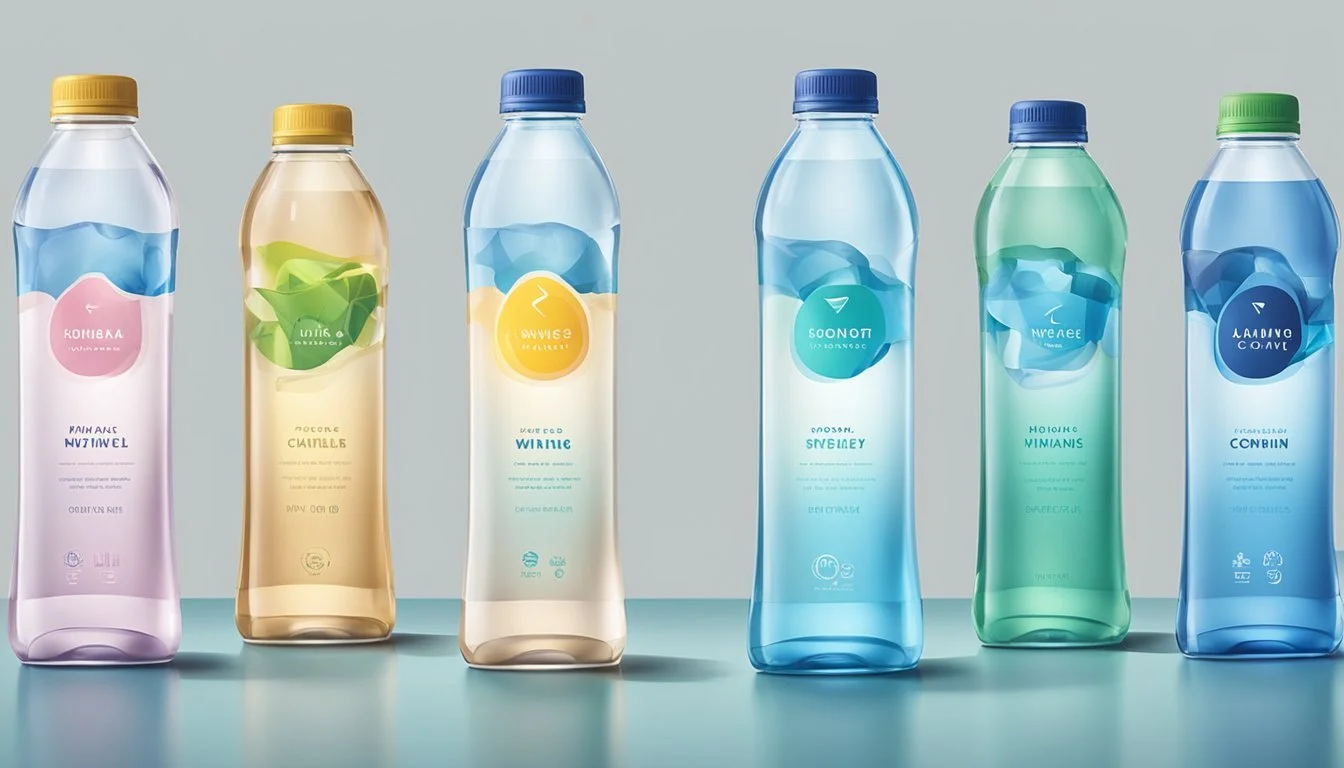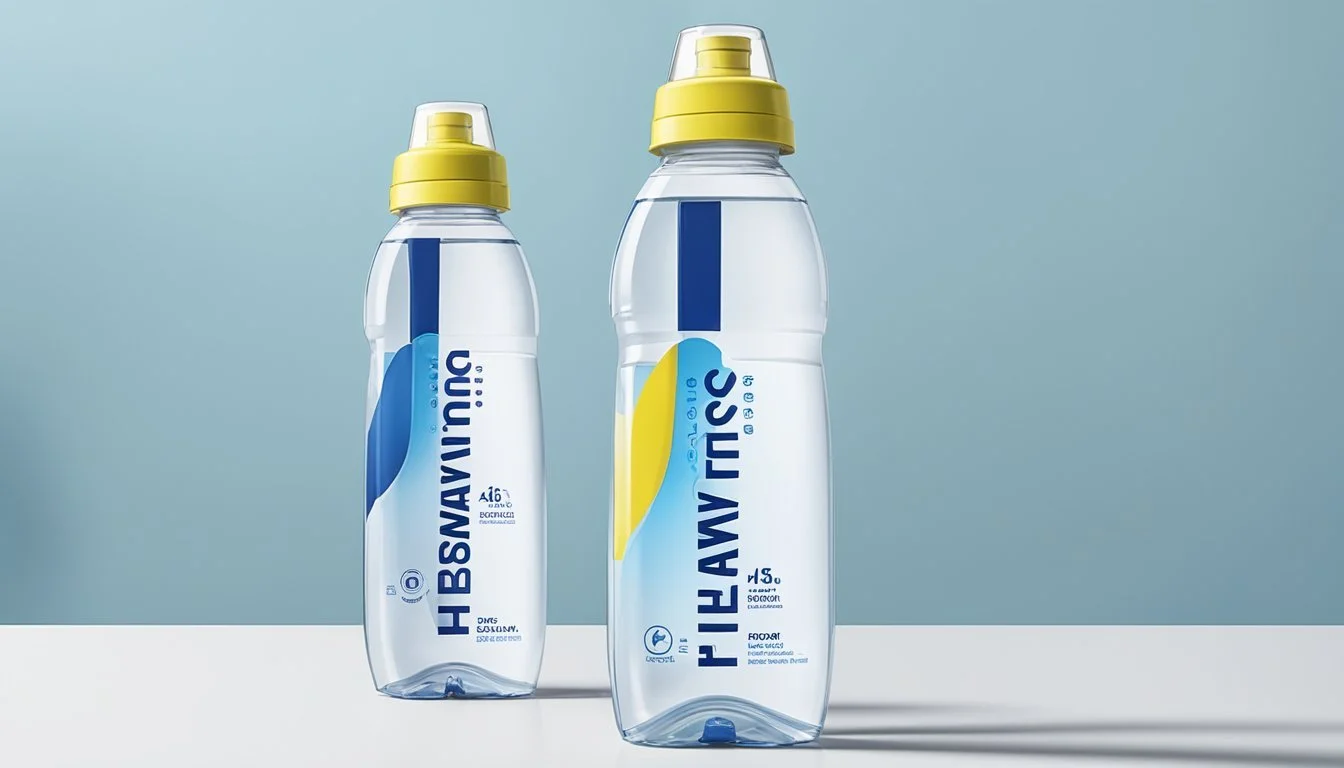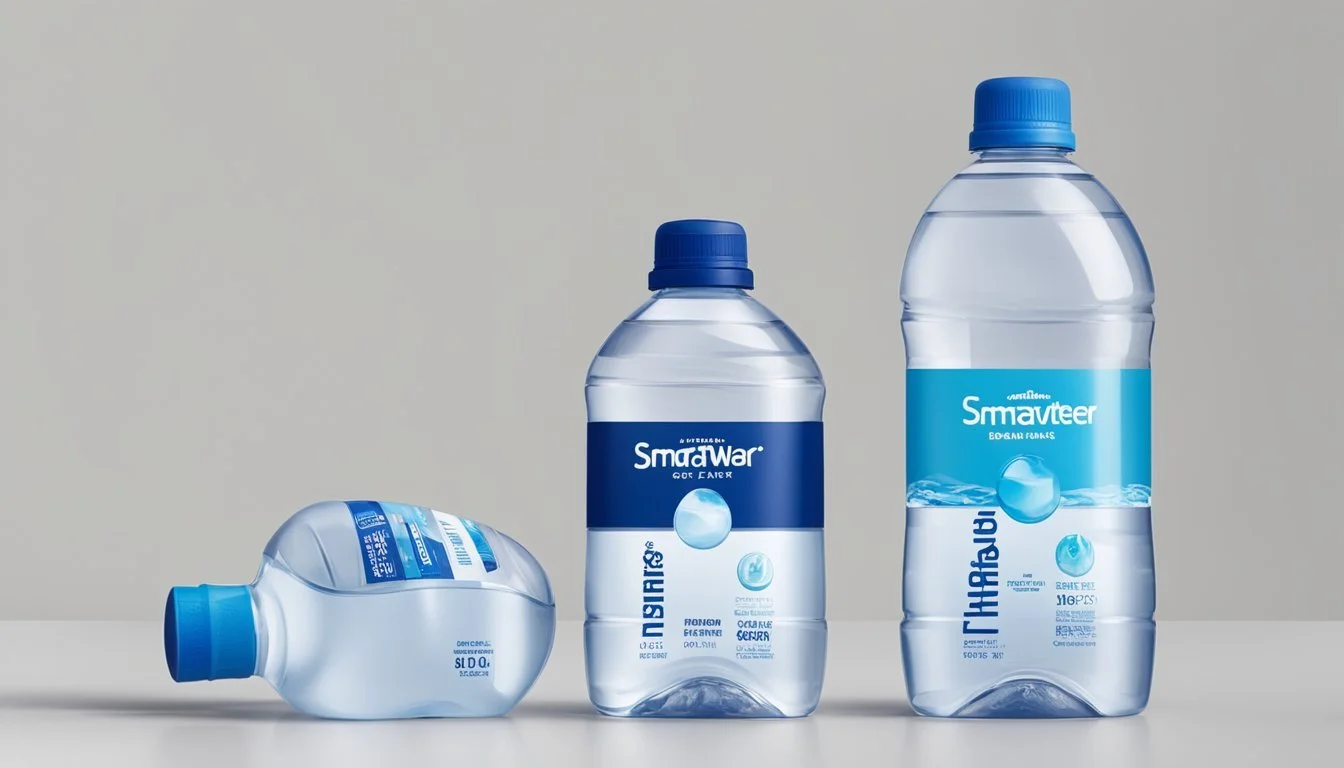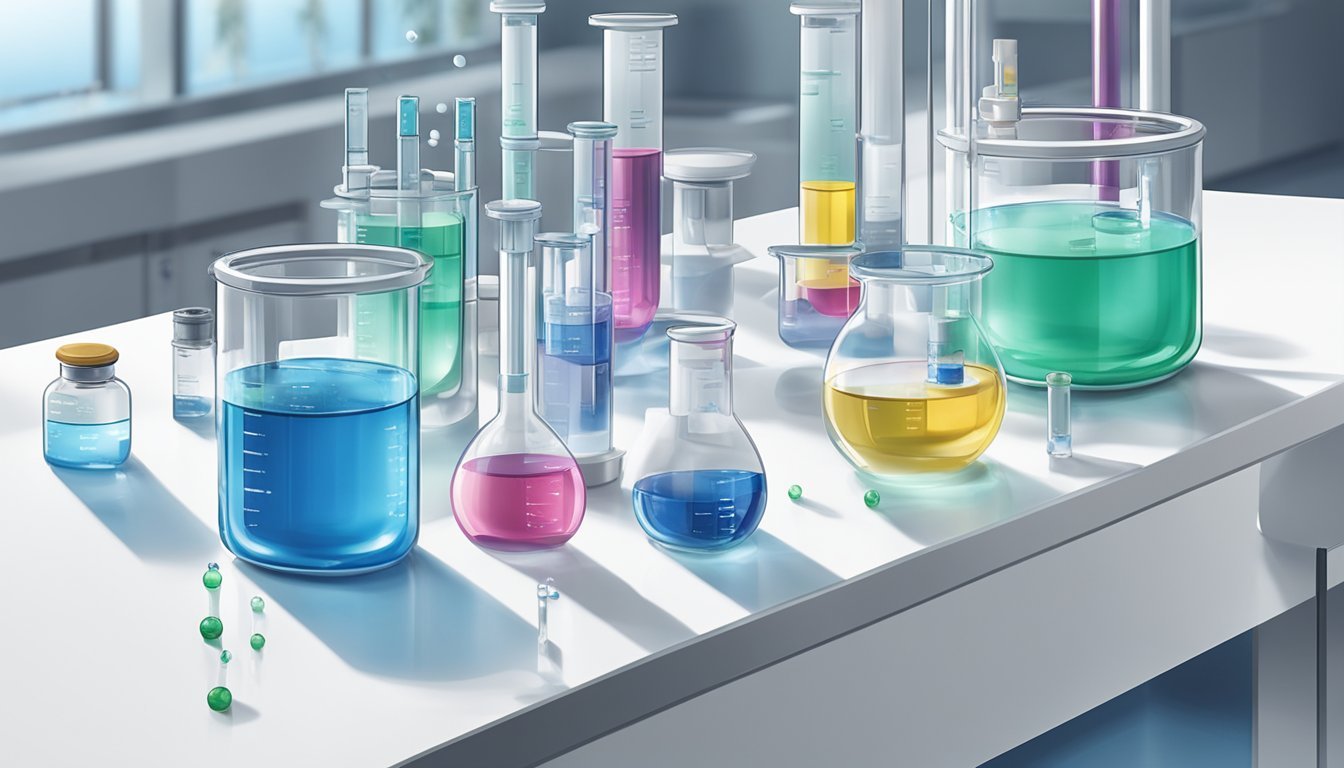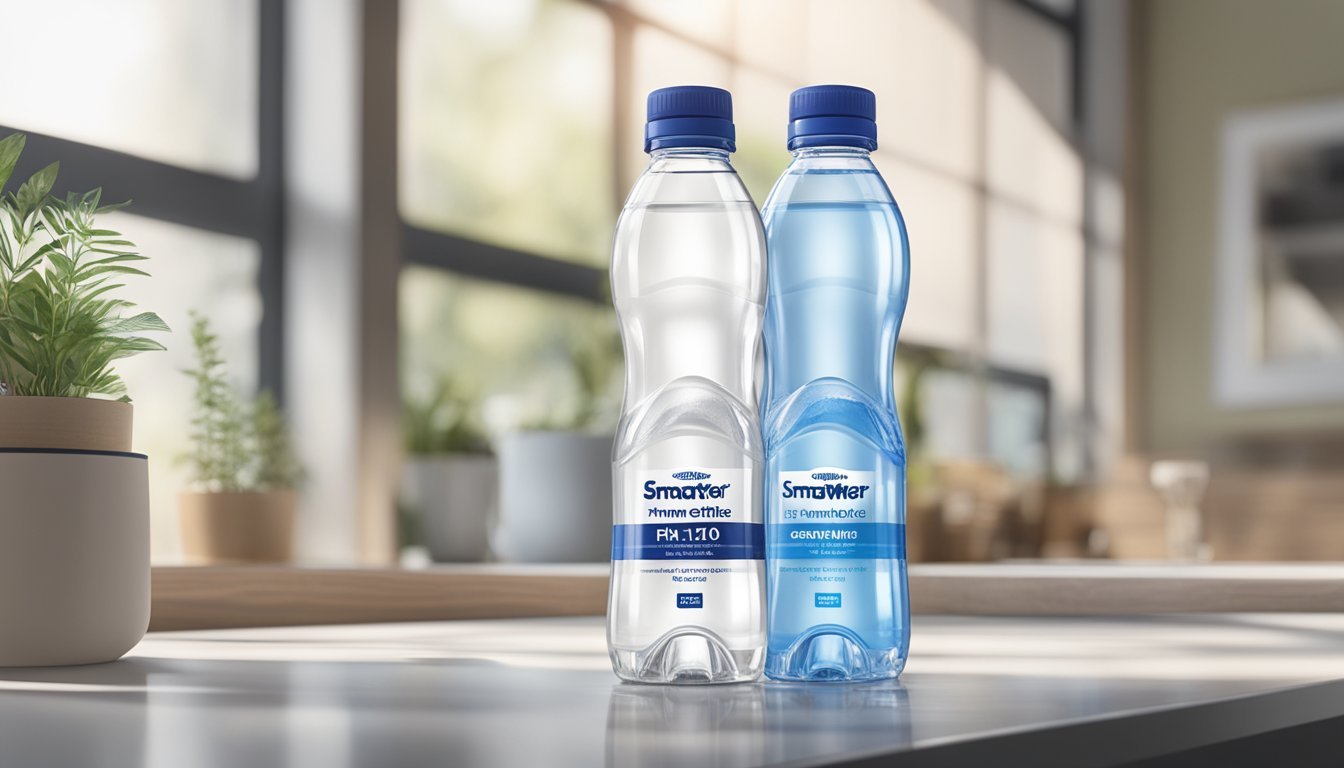Smartwater vs. Essence pH10
Comparing Quality and Taste
Choosing between Smartwater and Essence pH10 can be a challenge for anyone looking to make the healthiest hydration choice. Detailed comparisons reveal that Smartwater is known for its vapor-distilled process and added electrolytes, offering a crisp and clean taste. On the other hand, Essence pH10 boasts a higher pH level and alkaline properties that some believe offer enhanced hydration benefits.
For those prioritizing a higher pH level and potential health advantages, Essence pH10 clearly stands out. In contrast, those who value a streamlined ingredient list and smooth taste might find Smartwater more appealing. Both brands provide unique qualities that cater to different preferences, whether it's the purity and consistency of Smartwater or the alkaline boost from Essence pH10.
Ultimately, the best choice depends on your individual hydration needs and taste preferences. The following sections will break down the pros and cons of each brand, helping you decide which bottled water fits your lifestyle best.
Overview of Bottled Water
The bottled water market offers a diverse range of options from brands such as Smartwater and Essence pH10 to others like Fiji, Evian, and Pure Life. Key factors such as pH levels, mineral content, and brand origin play crucial roles in consumer choices. Understanding these elements provides valuable insights into selecting the right bottled water.
The Bottled Water Industry
The bottled water industry is a multi-billion dollar market with a variety of brands competing for consumer attention. Major players include Coca-Cola, which produces Smartwater, and PepsiCo, responsible for Aquafina.
Brands like Nestlé Pure Life and Poland Spring offer affordable options, while Voss and Icelandic Glacial target the premium market. The range of options caters to diverse preferences regarding pH levels, mineral content, and taste.
Regulations ensure safety and quality, while marketing strategies sway consumer preferences. Environmental concerns around plastic usage have led many companies to explore sustainable packaging solutions. This industry continues to evolve, balancing health benefits and environmental impact.
Smartwater and Essence pH10 Profile
Smartwater, produced by Coca-Cola, is known for its vapor-distilled production process and added electrolytes. The brand offers various flavors, enhanced with antioxidants and minerals.
Essence pH10 positions itself with an emphasis on a balanced pH level, typically around 10, which is believed to support alkalinity in the body. This makes it appealing to those seeking health benefits from higher pH.
Both brands aim to provide high-quality hydration but differ in their approach. Smartwater focuses on purity and taste, while Essence pH10 highlights its alkaline nature. These distinctions help consumers decide based on their specific hydration needs and health goals.
Scientific Analysis of Water Quality
Smartwater and Essence pH10 offer distinct features in their water quality, such as differences in pH levels, mineral content, and electrolytes that contribute to hydration and health benefits. It is essential to explore these aspects to understand their scientific merits.
pH Levels in Bottled Water
The pH level of water measures its acidity or alkalinity. Smartwater typically has a neutral pH of around 7, achieved through a blend of vapor distillation and the addition of electrolytes.
Essence pH10, on the other hand, is marketed as alkaline water with a higher pH level, usually around 10. The alkaline nature is believed by some to help neutralize acid in the body, potentially offering health benefits.
Mineral Content and Health Benefits
Mineral content in bottled water can significantly impact its health benefits. Smartwater contains added electrolytes like calcium, potassium, and magnesium, which are essential for various bodily functions. These minerals are introduced during the vapor distillation process to enhance taste and potentially support health.
Essence pH10 also contains minerals but focuses on its natural alkaline properties. The specific mineral composition of Essence pH10 is geared towards maintaining its high pH and supporting hydration, though it is less transparent about the exact concentrations compared to Smartwater.
Electrolytes and Hydration
Electrolytes are crucial for maintaining hydration and supporting bodily functions like muscle contraction and nerve signaling. Smartwater is enhanced with added electrolytes such as potassium, calcium, and magnesium, improving hydration by replenishing body salts lost through sweat and other activities.
Essence pH10 naturally contains electrolytes due to its alkaline source. These naturally occurring electrolytes can also aid in hydration, though the primary selling point is its high pH level rather than specific electrolyte content. Both brands cater to those seeking hydration with added benefits from electrolytes.
Water Sources and Filtration Processes
When comparing Smartwater and Essence pH10, it is crucial to consider the differences in their water sources and filtration processes. Understanding these distinctions helps in making an informed decision on which bottled water to choose.
Natural Sources vs Municipal Sources
Smartwater sources its water from municipal supplies, which are then subjected to extensive filtration and purification processes. This approach ensures that the water is accessible and consistent in quality.
Essence pH10, on the other hand, is known for its natural water sources. It boasts an underground spring origin, which contributes to its naturally alkaline properties. The water is collected directly from the spring, ensuring it retains its original mineral content.
By drawing from different sources, both brands provide unique water drinking experiences. Those preferring naturally sourced water might lean towards Essence pH10, while others may trust the reliability of Smartwater's municipal sources.
Filtration Methods and Purity
Smartwater employs a multi-stage purification process that includes reverse osmosis and distillation. This rigorous filtration removes impurities, resulting in highly purified water. Added electrolytes enhance taste, providing a cleaner and smoother water experience.
Essence pH10’s filtration process is designed to preserve its natural alkalinity. Utilizing minimal filtration, the brand’s focus is on maintaining the water's original mineral and electrolyte composition. This process includes basic filtration to remove potential contaminants without altering the water's fundamental properties.
While both brands prioritize delivering pure water, Smartwater's advanced filtration results in distilled water with added electrolytes. Essence pH10 emphasizes maintaining the natural integrity of its spring water, offering a more organic profile.
Bottled Water Safety and Contaminants
When choosing bottled water, safety and potential contaminants are key considerations. It's crucial to understand the regulatory standards in place and the issues related to plastic packaging.
Regulatory Standards and Compliance
Bottled water in the United States is regulated by both the Environmental Protection Agency (EPA) and the Food and Drug Administration (FDA). While the EPA oversees tap water, the FDA regulates bottled water as a packaged food product.
The FDA sets stringent standards for bottled water, including limits on contaminants such as lead and bacteria. Bottled water must meet the same safety standards as tap water for these elements. Regular compliance checks ensure that bottled water remains within the acceptable limits for various contaminants, guaranteeing its safety for consumption.
Essence pH10 and Smartwater both declare compliance with all regulatory requirements. Consumers should check for certification labels or test reports from independent laboratories to verify the safety of their bottled water.
BPA and Plastic Safety
Bisphenol A (BPA) is a chemical commonly found in plastics used for food and water containers. Concerns about BPA center around its potential health effects, leading to the rise of BPA-free products. Both Essence pH10 and Smartwater bottles are marketed as BPA-free, addressing these consumer concerns.
Plastic safety also involves ensuring the material does not leach harmful chemicals into the water. It's essential to look for packaging that states it is BPA-free to minimize potential exposure. Additionally, proper storage of bottled water away from heat can reduce the risk of plastic degradation.
Awareness and caution regarding BPA and other plastic contaminants help ensure that bottled water remains a safe and healthy choice for hydration.
Packaging, Sustainability, and Environmental Impact
Smartwater and Essence pH10 are popular bottled water brands, each with distinctive approaches to packaging and environmental sustainability. These factors play a significant role in consumer choice, especially given the rising concern over environmental impacts.
Plastic Bottles and Recycling
Smartwater uses plastic bottles that are not only 100% recyclable but also BPA-free. This ensures consumer safety by preventing harmful chemical leaching and meeting FDA regulations. Essence pH10 also emphasizes recyclable and BPA-free plastic bottles. This commonality illustrates both brands' commitment to reducing chemical exposure and promoting recycling.
Recyclability is a key feature here, encouraging consumers to consider how their consumption habits affect the planet. By choosing recyclable materials, Smartwater and Essence pH10 aim to boost recycling rates, though actual consumer recycling practices ultimately determine their effectiveness.
Environmental Concerns of Bottled Water
The environmental impact of bottled water extends beyond just the bottle material. The production, transportation, and disposal of plastic bottles significantly contribute to carbon emissions and waste. Even recyclable bottles require energy to process and repurpose, and not all are successfully recycled.
Essence pH10 and Smartwater both face challenges in this area. Plastic, whether BPA-free or not, persists in the environment, posing risks to wildlife and ecosystems. Choosing bottled water, regardless of brand, carries inherent environmental costs.
Sustainability efforts by both brands, such as promoting bottle recyclability, are steps in the right direction. However, the environmental footprint of bottled water remains a critical issue that requires more comprehensive solutions beyond individual product choices.
Taste and Aftertaste Analysis
Smartwater and Essence pH10 both have distinctive qualities that appeal to different palates, influenced by their mineral content and pH levels. This section delves into their water taste profiles and the aftertaste concerns related to minerals and pH.
Water Taste Profiles
Smartwater is often described as having a clean and crisp taste. Its distillation process ensures that the water is free from impurities, providing a pure drinking experience. Some consumers note a lack of significant flavor, which can be seen as both a positive and a negative depending on personal preferences.
Essence pH10, on the other hand, is praised for its refreshing taste with subtle mineral notes. This brand's higher pH level contributes to a more alkaline taste, which some find smooth and pleasant. The presence of minerals can add complexity to the taste profile, making it stand out among other bottled waters.
Aftertaste Concerns Related to Minerals and pH
Aftertaste can be a critical factor in choosing a bottled water. Smartwater, despite its high scores in water purity, occasionally receives feedback about a faint "distillation flavor". This aftertaste is not strong but might be noticeable to sensitive palates.
Essence pH10's mineral content impacts its aftertaste more significantly. Higher pH levels can result in a slightly alkaline aftertaste, which some consumers find lingering and enjoyable, while others may find it unusual. The hint of minerals left on the palate can add to the water's distinctive qualities, differentiating it from more neutral-tasting options.
Both Smartwater and Essence pH10 offer unique aftertaste experiences that reflect their respective processing methods and mineral compositions, giving consumers different sensory experiences to consider.
Comparative Analysis
Comparing Smartwater and Essence pH10 highlights differences in price, value, brand reputation, and consumer preference. Understanding these factors can help you make an informed decision.
Price and Value
Smartwater generally retails at a mid-tier price point. It is often priced between $1.50 and $2.00 per bottle, depending on the retailer and size. The brand positions itself as a premium option, partly due to its vapor distillation process and added electrolytes.
Essence pH10, with its highly alkaline pH of 10.10, is marketed as a high-end product. The price per bottle tends to be higher, ranging from $2.50 to $4.00. The significant difference in price reflects both the higher pH level and the brand's positioning in the luxury water market.
Brand Reputation and Consumer Preference
Smartwater enjoys strong brand recognition. Owned by The Coca-Cola Company, it benefits from extensive marketing and wide distribution. Celebrity endorsements and a sleek design contribute to its popularity. Consumers appreciate its clean taste and the added electrolytes for hydration.
Essence pH10 is less widely known but has a dedicated following among alkaline water enthusiasts. It appeals to consumers looking for high alkalinity in their bottled water. Despite a higher price point, those who prioritize alkaline levels and premium quality often choose Essence pH10 over other brands.
Smartwater’s broad distribution and consistent quality make it a staple in stores and vending machines, including outlets like Starbucks. Essence pH10, while niche, finds its place among health-conscious consumers seeking specific pH benefits.
The Role of Bottled Water in Health and Lifestyle
Bottled water plays a significant role in everyday health and lifestyle by offering convenient hydration options and impacting various aspects of wellness. Smartwater and Essence pH10 each have unique qualities that contribute to these roles.
Hydration and Athletic Performance
Maintaining proper hydration is essential for overall health, particularly during physical activity. Bottled water brands like Smartwater and Essence pH10 are designed to meet hydration needs conveniently and effectively.
Smartwater is known for its electrolyte-enhanced formula, which can aid in replenishing fluids lost through sweat. This makes it a popular choice among athletes and fitness enthusiasts.
Essence pH10, with its higher pH level, offers alkaline water that some believe helps balance body acidity and improve hydration efficiency.
The quick availability of bottled water supports staying hydrated on the go, proving especially beneficial during workouts and outdoor activities. Both brands aim to provide easy access to clean, safe drinking water, facilitating hydration any time it's needed.
Dental Health and Water Acidity
Dental health can be influenced by the acidity of the water consumed. Bottled water like Smartwater and Essence pH10 present different profiles regarding their pH levels, which in turn affects their impact on dental health.
Smartwater, typically neutral, avoids contributing to dental erosion linked to acidic beverages. It is formulated to maintain a balance that should not harm tooth enamel.
Essence pH10, with its alkaline pH, may offer additional benefits by neutralizing acids in the mouth. This can help minimize acid wear and support overall dental health.
Both brands avoid unhealthy additives and contaminants, making them safe choices for those concerned about their dental health. Providing clean, balanced water helps protect teeth while ensuring essential daily hydration.
Advanced Topics in Water Chemistry
This section delves into the specifics of comparing pH levels and mineral content in Smartwater and Essence pH10. It breaks down the methods for testing pH and discusses various minerals that influence water acidity.
Understanding pH Indicators and Test Methods
Measuring pH accurately is essential in water chemistry. pH indicator paper provides a quick and cost-effective means to determine acidity or alkalinity. Simply dip the strip in water, and compare the color change to a standardized chart. This method, while convenient, may lack precision.
Electronic pH meters offer more accurate readings. These devices use electrodes to measure the hydrogen ion activity, providing a more precise pH value. They require calibration with buffer solutions but are indispensable for detailed analysis.
Both pH indicator paper and electronic pH meters are commonly used in comparing bottled waters like Smartwater and Essence pH10, assisting in determining their suitability for various hydration needs.
Comparing Mineral Composition and Acidity
Water's mineral composition affects its natural pH level and taste. Key minerals to consider include calcium, magnesium, potassium, and sodium. Essence pH10 is known for its balanced mineral content that maintains a slightly alkaline pH.
In contrast, Smartwater is distilled, meaning it initially has no minerals. Nutrients such as calcium and magnesium are added back, giving it a neutral pH. This re-mineralization process ensures a clean taste but might lack some natural mineral benefits.
These differences in mineral composition can influence not only the water's health benefits but also its flavor profile, making one brand more suitable depending on individual preferences.
Consumer Education and Resources
Consumers seeking to compare Smartwater and Essence pH10 should understand the intricacies of water labeling and leverage reliable resources for deeper insights.
How to Understand Water Labels
Understanding water labels is key to making informed choices. pH levels indicate the water's acidity or alkalinity, with Essence pH10 being alkaline and Smartwater having neutral pH.
Look for mineral content on the label, such as calcium, magnesium, and potassium, that contribute to taste and health benefits. Smartwater often contains added electrolytes, while Essence pH10 boasts natural minerals due to its high pH level.
Check for impurities and treatment methods as well. Waters from municipal sources like Smartwater might undergo distillation and brittan filters, ensuring purity but potentially impacting taste.
Resources for Further Research
Accessing reliable resources can provide more comprehensive information about bottled waters. Websites like the Environmental Working Group offer databases on bottled water quality, including potential impurities and sourcing details.
Government resources, like those from the FDA and EPA, provide guidelines on safe drinking water and bottled water standards.
For understanding specific brands, visit official websites and look at third-party reviews on platforms like Consumer Reports. Engaging with health forums or consult experts for views on fluoride levels and other additives can also be beneficial.
Conclusion
Essence pH10 and Smartwater both offer unique benefits for hydration needs.
Smartwater is known for its clean taste and the addition of electrolytes, which can be appealing for those looking for a refreshing and replenishing drink. The vapor-distillation process it undergoes ensures purity.
Essence pH10 stands out with its higher pH level, aimed at providing an alkaline balance. This can be beneficial for those seeking to neutralize acidity in their diet. Additionally, its mineral content can offer added health benefits.
In terms of pH levels, Essence pH10 typically surpasses Smartwater, making it a preferred choice for those prioritizing alkalinity.
When considering taste, preferences may vary. Some may find Smartwater’s clean and crisp profile more enjoyable, while others might prefer the mineral-rich taste of Essence pH10.
Price and availability can also play a crucial role. Smartwater is widely available and generally comes at a reasonable price point. Essence pH10, being a more specialized product, might be a bit harder to find and could be priced higher.
In balancing health benefits, taste, and availability, both bottled waters have their strengths. It ultimately depends on individual preferences and health goals which brand suits better for daily hydration.
More About Smartwater
Core Hydration vs Smartwater: Which Bottled Water is Better?
Icelandic Glacial vs Smartwater: Which Bottled Water is Better?
Mountain Valley Spring Water vs Smartwater: Which Bottled Water is Better?
Nestle Pure Life vs Smartwater: Which Bottled Water is Better?
San Pellegrino vs Smartwater: Which Bottled Water is Better?
Smartwater vs Aqua Carpatica: Which Bottled Water is Better?
Smartwater vs Cascade Mountain: Which Bottled Water is Better?
Smartwater vs Crystal Geyser: Which Bottled Water is Better?
Smartwater vs Hawaii Volcanic: Which Bottled Water is Better?
Smartwater vs Hawaiian Springs: Which Bottled Water is Better?
Smartwater vs Kirkland Signature: Which Bottled Water is Better?
Smartwater vs Richard's Rainwater: Which Bottled Water is Better?
Smartwater vs Solan de Cabras: Which Bottled Water is Better?
Smartwater vs Talking Rain AQA: Which Bottled Water is Better?
Smartwater vs Whole Foods 365: Which Bottled Water is Better?
Smartwater vs Whole Foods Italian Still Mineral water: Which Bottled Water is Better?
More About Essence pH10
Aqua Carpatica vs Essence pH10: Which Bottled Water is Better?
Cascade Mountain vs Essence pH10: Which Bottled Water is Better?
Core Hydration vs Essence pH10: Which Bottled Water is Better?
Crystal Geyser vs Essence pH10: Which Bottled Water is Better?
Crystal Lake vs Essence pH10: Which Bottled Water is Better?
Hawaii Volcanic vs Essence pH10: Which Bottled Water is Better?
Hawaiian Springs vs Essence pH10: Which Bottled Water is Better?
Ice Mountain vs Essence pH10: Which Bottled Water is Better?
Icelandic Glacial vs Essence pH10: Which Bottled Water is Better?
Kirkland Signature vs Essence pH10: Which Bottled Water is Better?
Liquid Death vs Essence pH10: Which Bottled Water is Better?
Mountain Valley Spring Water vs Essence pH10: Which Bottled Water is Better?
Nestle Pure Life vs Essence pH10: Which Bottled Water is Better?
Poland Spring vs Essence pH10: Which Bottled Water is Better?
Proud Source vs Essence pH10: Which Bottled Water is Better?
Purely Sedona vs Essence pH10: Which Bottled Water is Better?
Richard's Rainwater vs Essence pH10: Which Bottled Water is Better?
San Pellegrino vs Essence pH10: Which Bottled Water is Better?
Simple Truth vs Essence pH10: Which Bottled Water is Better?
Solan de Cabras vs Essence pH10: Which Bottled Water is Better?
Talking Rain AQA vs Essence pH10: Which Bottled Water is Better?
Whole Foods 365 vs Essence pH10: Which Bottled Water is Better?
Whole Foods Italian Still Mineral water vs Essence pH10: Which Bottled Water is Better?

